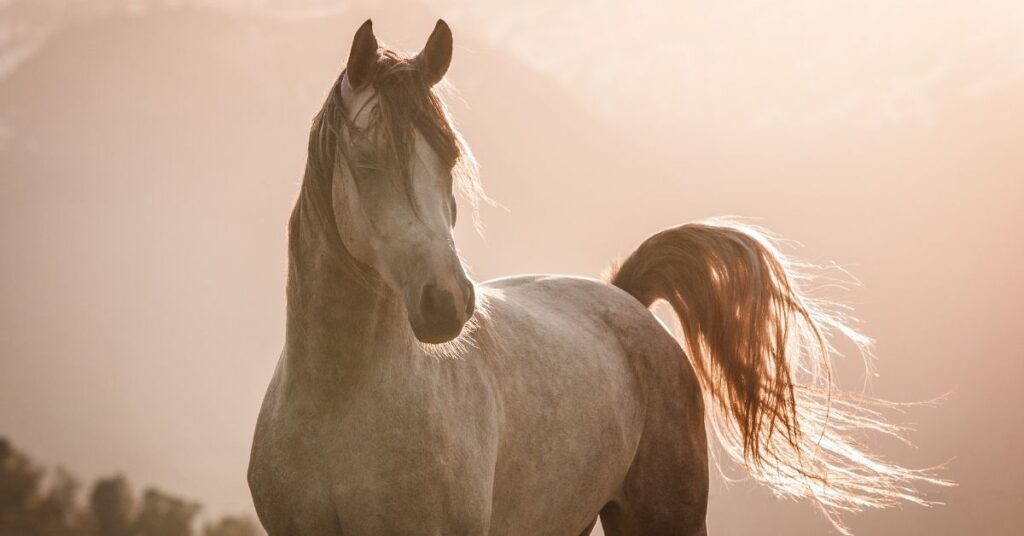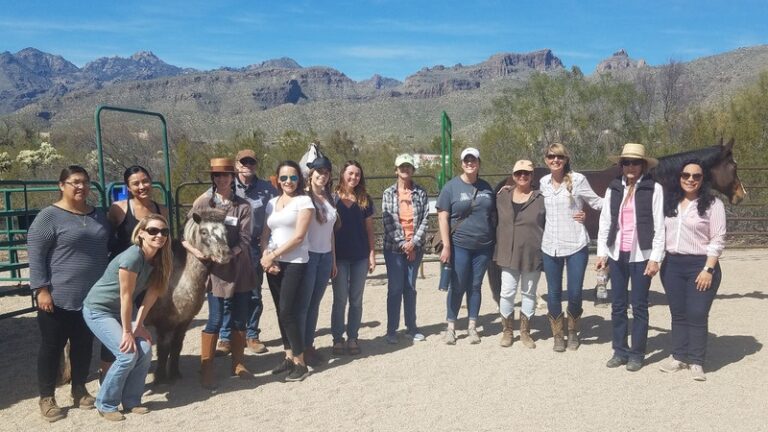
The following is the opinion and analysis of the writer.
On a cool, sun-filled day, four Homicide Survivors gather at the corral of local equine psychotherapist Sherry Simon-Heldt. As rabbits cavort and quail call and scratch beneath nearby bushes, all eyes are on the horses. There is Cisco, a large bay gelding with the commanding presence of a leader; Tonto, Cisco’s miniature companion and the herd’s “mischief-maker”; Roco, whom Sherry calls “the lover of the herd” for his receptivity to human touch; and Cabo, a beautiful, independent silver-white pony.
Sherry and the herd of Equine Explorations™ have had the privilege of providing equine-interaction therapy to Homicide Survivors at her ranch in the Tanque Verde Valley since October 2015. Groups have met for four sessions, typically lasting two-and-a-half hours each.
At the second session of this group, Sherry begins with a single question: “What have you noticed since we met last week?”
“I feel less anger,” one participant replies. Other responses quickly follow: “I’m more present,” “I’m ready to walk into my grief,” “I was finally able to cry.” Pain is evident in every word. And there is something else as well—hope. A dawning awareness that, as one participant put it, “Though nothing will ever make it go away, the pain will get easier.” When asked, they attribute this renewed sense of possibility to being here, with Sherry and the horses.
As Sherry explains, equine-interaction therapy is “a way to make connections between the emotional and thinking parts of our brain, to help regulate the nervous system, explore our ‘stories,’ and learn to live more fully in the present.” Being able to connect physically and emotionally in a safe way with a horse can inspire confidence and trust for survivors.

For their survival as prey animals, horses maintain vigilance over their environment, attentive to any potential danger from predators. Not unlike humans who have experienced trauma. A horse feels safe when his environment is congruent. He feels unsafe when anything in his environment is “off,” not in sync—such as a rustle in the brush, and a human who pretends to be “fine,” when he or she is really feeling sad, angry, frustrated, etc. As the saying goes, “Horses don’t lie.” They teach us to be more honest with ourselves. They also live in the moment, and can help us learn to be more in the present (not overthink). This can be challenging, particularly for those who are carrying the burden of grief…. of putting on a brave face while trying to “keep it together.”
“I’m afraid the horses will pick up on (my) pain,” someone says. This is a common concern among participants. Sherry assures the group that horses do not judge human emotions. They accept us wherever we are, as long as we are honest—congruent. In the corral, participants find just enough space, just enough acceptance, to begin the journey of healing.
To this end, Sherry facilitates exercises that offer opportunities for connection. In one, participants sit quietly in the round pen as the horses are invited into their circle. Tonto comes in first, nudging one person and then another with his velvety muzzle, softly blowing through his nose, a sign of curiosity. Cisco then slowly enters the round pen, and the two horses begin playing. The participants rise and observe, totally intrigued and delighted.
Sherry then presents the “Heart to Heart” exercise. A horse’s heart beats slower than a human’s, she explains. When a participant, breathing deeply and slowly, places her heart next to the horse’s, the horse’s heart begins to sync with hers, matching rhythm for rhythm. The result is an experience of deep connection, with an accompanying sense of calm. For many of the survivors, it is a moment of profound release. There are tears, sometimes sobs. The idea of something so beautiful, so powerful as a horse inviting and accepting such emotion is described as “awe-inspiring.”
To enhance the experience of connection, Sherry next presents a deck of “pony cards,” each with a painting of a horse on one side and an inspirational message on the other. The intent of the Pony Ponderings Inspiration Cards (created by professional life coach Kami Guildner) is to tap into intuition and inspire reflection. As often happens with this activity, today’s participants receive messages that resonate with them on a deep, emotional level.
“Beloved” one card reads. “Oh, my!” exclaims the person holding it, “my heart is…” She stops, overcome. “That’s what I called my husband.”
“Fire of Passion”: The woman who chooses this card begins to weep. She often speaks to her daughter, now deceased, and shares, “This morning, I asked her to help bring me back my passion. I want to live again.”
The final card shared is “Ghost Whisperer.” “Be peaceful in the solitude of nature,” it instructs. “Listen to the wisdom of your ancestors.” A young man smiles. “That’s my dad. I don’t do anything… without asking what he would want me to do.”
Sherry wraps up the session by asking participants to share a word of the day which expresses what today’s experience has meant to them. The responses, delivered with an observable calm and uplifted energy that was absent when the workshop began the week before, are a testament to the power of this work:
“Wonderful” “Validating” “Healing” “Relaxing”
In leaving, all the survivors express how they cannot wait to return the following week.
Join us on Saturday, September 21st to commemorate the National Day of Remembrance with a survivor picnic to honor loved ones lost to violence in our community. The event will include food, drinks, and a craft activity for you to take home.
Every year, families in our community are shattered by the loss of a loved one to homicide. Please consider joining us this Arizona Gives Day and donating to our cause. Your contribution will ensure we continue to provide services to Survivors, such as advocacy, support and assistance.